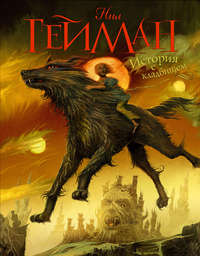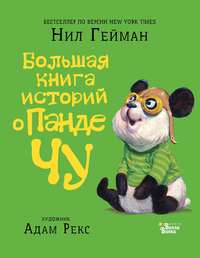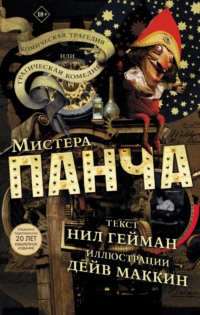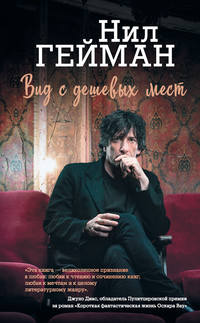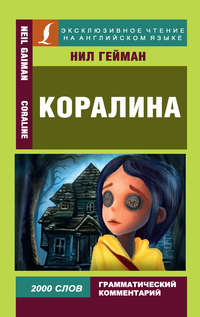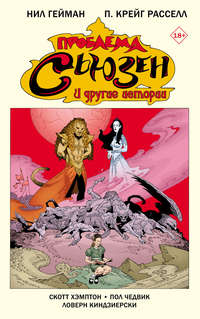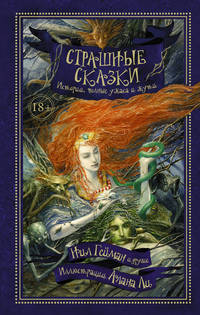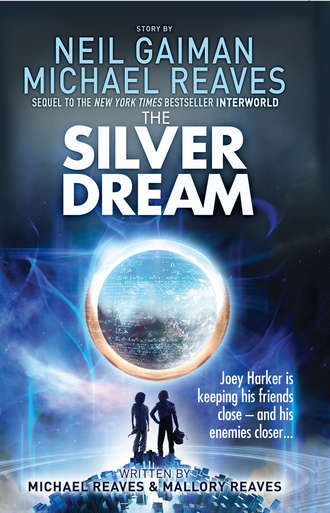
Полная версия
The Silver Dream
“This is beautiful,” Acacia said finally, and I could tell she truly meant it. Her quirky smile had been replaced with a calm, sad curl of her lips.
“Yeah,” I said, looking at my own offering. It had taken a lot of courage to finally put something up here when I’d first arrived. Everyone was giving me hell over Jay’s death, and they’d already started a little monument to him on the Wall. He’d been important to a lot of people; his was one of the largest sections. Someone had tacked up a picture of him, someone else, a sketch. There was a funny little drawing on one of the mess hall napkins that was apparently an inside joke, and a book with a note that said thank you.
That was most common on Jay’s part of the Wall—the thank-yous. In different handwritings, different languages, different colors and ways. They were all taped or projected or drawn around Jay’s photo. Mine was one of them, made from the rocks and pebbles of the world where he’d drawn his last breath.
Acacia caught me looking, and turned her attention to the portrait of Jay. “Who was he?”
Though I’d expected the question the moment we stopped at his picture, I still had to take a breath before I could answer. “Jay. He saved my life,” I said shortly. “And I got him killed.” It’s funny how one’s need to impress someone is completely forgotten in the face of honest emotion.
“Did you mean to?”
I turned to look at her, aghast. “No!”
“Then don’t blame yourself,” she said, not looking at me. “If he was protecting you, he knew what might happen.”
“He died because I didn’t listen to him,” I said, trying to keep from snapping, but it was hard. “I ran off to help a mudluff, even though he told me it was dangerous.”
“You mean Hue?” She asked. I nodded.
“He was stuck. . . . I didn’t know what he was, but he looked scared. Turns out, he was scared—he’d been trapped by a gyradon.” After Jay’s death, I’d done some research and found out exactly what the thing had been that had attacked us. It hadn’t made me feel any better, but at least I’d felt a little less like a dumb kid who didn’t even know what happened well enough to explain it to anyone.
Acacia nodded, apparently recognizing what kind of monster it had been. “You were right, though. And you saved Hue.”
“Yeah,” I said, looking back at the Wall. Jay for Hue. Was that a fair trade? Hue had saved me from getting caught by HEX once, and in turn enabled me to save my team. . . . But maybe if Jay hadn’t died, everything would have gone differently. Maybe we wouldn’t have been trapped by HEX in the first place, wouldn’t have needed saving . . .
It was enough to give me a headache. I looked at Jay’s portrait, silent, until Acacia spoke again.
“How many of them did you know?”
“Just him,” I said with difficulty. The admission made me feel guilty, like I didn’t deserve to be standing in front of all this loss, untouched. Survivor’s guilt, they call it. Knowing the name of it didn’t make it any easier to live with.
“You’ll know more,” she said. “Eventually.”
Oddly, the comment didn’t irritate me. She wasn’t trying to be smug, or show that she knew more than I did. I knew it was true. You don’t fight a war without expecting casualties, and as much as I’d work to not let it happen, I knew more of us would wind up as memories on the Wall. Probably even me.
“Yeah,” I said. “I know.”
She took my hand.
I showed her the port room—there was some debate over whether or not it was called that because you could teleport to other parts of Base Town from it, or because it was on the far left side of the ship—and looped back around through the second row of lockers to show her the mini theater and the arcades, then took her through the library back to the classrooms. Most of the classes were done for the day, but a few of my teachers were still coming and going.
I got us out onto one of the higher decks in time for her to witness another phase transition. One of InterWorld’s more insidious features was its ability to move both forward and backward in time, spanning a period of more than 100,000 years. And just to make things harder for HEX and the Binary to track us, the soliton array engines were also programmed to go “sideways” in time as well; in other words, they could cross the Dirac walls from one parallel Earth to another. The number of altiversal worlds we crossed to, and the time we stayed in each one, was determined by spells based on quantum randomization; there was absolutely no way to break the code pattern.
For the last two weeks we’d had the wards on maximum and the air filters going full blast, because this particular Earth was celebrating its particular anniversary (if that’s the word) of the K-T extinction event, which had pretty much wiped out Barney the dinosaur and all his extended family. Only now was the raw, bloody sunlight beginning to break through the global cloud cover, and what it showed wasn’t pretty: a scorched Earth, carpeted with the charcoal of what had once been a magnificent old-growth forest.
“Your ship can time travel?” she asked, after I’d explained what the phase shift was. She seemed incredibly interested, and I was a little too grateful that she was finally asking me a question I could answer.
“Yes and no,” I said, trying to give her the same kind of non-answer she always gave me. It didn’t exactly work. She just looked at me, and the expectant way she raised her eyebrows made me elaborate further. “We’re traveling on a randomly set path, on parallel dimensions of the same three worlds. The ship goes backward and forward, but—”
“But it can’t anchor at will,” she said authoritatively, giving a knowing nod. “You phase to destinations set by a random variable on those three worlds, but you’re still anchored to the alphastream.”
I didn’t have any clue what she was talking about, but that was more or less par for the course at this point. She seemed satisfied at my nod; what she’d said sounded right, anyway, and I knew we never time traveled beyond going back and forth on our base worlds. I turned to lead her out of the upper deck, down to the class halls. The windows around us were still coated with a thick layer of dust and ash.
“Hey, Jayarre,” I said as we passed through one of the open doors. Unlike the school I was used to, we never called teachers by their last names and “Mr.” or “Ms.”—after all, some of them didn’t even have last names.
Jayarre focused on me—I thought he’d been looking at me anyway, which was why I’d said hello, but it was hard to tell with the monocle—and gave a cheerful smile accompanied by an exuberant wave. Jayarre was the Culture and Improvisation teacher. He hailed from an Earth more toward the magic side of things, where he’d once explained that all the world was, literally, a stage. I didn’t really understand it beyond that, but he had the look of a circus ringmaster and the disposition of your favorite uncle. “Hello, hello! Showing the lady around, are we?”
He also, like most of the other teachers, often seemed to just know things.
“Yeah,” I said, pausing in the doorway. “This is Acacia Jones.”
“Well met, my dear, well met!” He rose and crossed the room in three giant steps to shake her hand. She didn’t seem at all rattled. “Are you enjoying your tour du jour, madame?”
“Vachement, monsieur!” she responded, which I recognized from Basic Language Studies as an emphatic agreement.
Jayarre’s eyebrows rose almost to the brim of his top hat, mustache lifting with his grin. “Merveilleuse, ma bichette!”
“I was going to show her the Hazard Zone,” I interrupted, only to have those eyebrows turned toward me next.
“Were you, now? Well, why not, why not? If she has prime clearance, I see no way at all in which this could go even remotely wrong!” Jayarre was kind of like Jai sometimes, except that instead of using words with lots of syllables, he just used a lot of words. “Perhaps I shall join you on your wondrous journey!”
I hadn’t anticipated that, but before I could come up with any possible reason he shouldn’t, someone else passed by the door.
“Office. Meeting,” she said shortly, turning to glance at me. Jirathe was the Alchemy teacher, and never used two words if one would do. She looked as human as me, save the minor quibble that her cells were made from ectoplasm instead of protoplasm. As a result, her body was sort of a uniform translucent gray when she wasn’t moving. But when she was . . . well, the human body is made of more than six trillion cells, each one mostly water. Whenever Jirathe moved, it was like six trillion prisms catching whatever light there was. Or, to put it another way, it was like a rainbow exploding.
“Should I head back to the briefing room?” I hadn’t heard anything over the speakers, but maybe something important was happening.
“No.” Jirathe gave Jayarre a significant glance, then continued down the deck, through a shaft of crimson sunlight that made her bare arms and shoulders ripple like a fireworks display.
Jayarre murmured, “Sorry about that, my boy. Sounds like senior staff only.” He turned back to Acacia, taking her hand and pressing a kiss to her knuckles. “Lovely to meet you, my dear. Perhaps we can exchange pleasantries another time, but now I’ve got to dash. à bientôt.”
“Enchanté!” Acacia called over her shoulder as we parted ways, and I noticed several of the other teachers filing out of their classrooms and heading in the direction of the Old Man’s office. What was the meeting about? Acacia, probably. Was he going to revoke her clearance? No, he’d have no reason to. . . . He wouldn’t have given it to her in the first place if he didn’t trust her.
“It’s about me, I bet,” she said cheerfully. If she was sharing any of the same thoughts as I, she seemed completely at peace with them.
“Probably. That doesn’t bother you?”
“It’d bother me if they weren’t having a meeting,” she said, and I paused to glance at her. “You’re fighting a war here, and you’ve suddenly got a stowaway on your boat. Wouldn’t you call a meeting to make sure everyone knew about a potential threat?”
“The Old Man didn’t think you were a threat.”
She tilted her head at me. “You sure? He gave me clearance, but do you really think he’s not making sure everyone knows it, just in case?”
I thought about that for a moment, going over what she’d said and the way she’d said it. “Are you?”
“Am I what?”
“A potential threat.”
“You’re a Walker, aren’t you? You move between dimensions. You know that ‘potential’ is a heavy word.”
I couldn’t help it; I smiled, just a little. “True. So you are a potential threat.”
“Sure I am,” she said, looking at me seriously. Her eyes, as I noticed before, were unmistakably violet, not that she looked anything other than human. Aside from her circuit-board nails, that is. “Or I’m an ally. You think that’s only up to me?”
Behind us, reality shimmered, twisted, and re-formed into a completely different, though no less extreme, environment. I tore my gaze from Acacia’s to find that we were hovering over an equatorial glacier. Welcome to Snowball Earth, where for millions of years even the oceans were frozen solid. I glanced back at Acacia to see if she’d noticed the small time jump. She was looking out the window as well, with an odd, peaceful smile.
“No,” I said in response to her last statement, and she smiled at me. The heating elements kicked in as I turned toward the physical training section of the ship, but I was pretty sure that smile could have warmed me up by itself.

THE HAZARD ZONE IS like the best virtual reality game ever, except that on occasion—or even most of the time, really—it will try to kill you. It’s the Holodeck and the Danger Room combined, with five stages of different variables and conditioning. It’s not that stage 1 is entirely harmless and stage 5 is real danger—the different levels merely indicate how badly things will hurt you. Some of the challenges are real, some of them are illusory, and all of them are programmed with random or hidden variables: A rock appears under your foot as you’re trying to dodge a series of spears, or a swarm of hornets is stirred up by the particle blast you’ve just diverted into a tree.
Getting hurt in the Hazard Zone is like a rite of passage. Everyone does it at least once. You’re not really one of us until you’ve been sent to the infirmary with a third-degree burn because there was the tiniest bit of doubt in your mind that the fire-breathing salamander that just leaped out of the cave could really hurt you.
You learn fast. I did.
My first Hazard Zone injury was better than some (J/O had broken a servo when part of the ground had actually caved under his weight) and worse than others (Jerzy Harhkar’s only injury had literally been a paper cut during an “attack on the school” scenario). I’d stumbled onto a spinedog variable while training in a jungle simulation. If you’ve never met a spinedog, don’t feel bad; I hadn’t, either. It seemed likely that they had those spines for a reason, and that they knew how to use them—what I hadn’t known was that part of the reason (aside from the obvious) that they were called spinedogs was their choice of habitat. Not wanting to disturb their nest, I’d ducked around the nearest tree, putting a hand on the bark to steady myself—
—and nearly jumped out of my skin as the tree swelled up like a puffer fish. Hundreds of tiny, wooden needles stabbed into my palm, and not only had I stumbled back into the path of the simulated HEX agent I’d been playing cat and mouse with, I failed the sim because I couldn’t draw my blaster with my arm numb to the elbow.
It was hardly the most painful thing I’d ever experienced, but having those needles removed was no fun at all, and using my hand was difficult for two weeks afterward. It hadn’t even left me with any cool scars to show off.
Acacia was looking at the empty room with the kind of interested skepticism we all start out with, but I really didn’t want to drag her to the infirmary after her first session. “It doesn’t seem very big,” she commented finally, crossing from one wall to the next in about twenty-five big steps.
“Not until you’re running for your life from a cyborg velociraptor, no. The floor is made of anisotropic treadmills that move with you when you run. The scenery moves around you. Makes it feel pretty real, once you get over the fear that it’s gonna malfunction and send you smack into a wall.”
Acacia giggled. “Has that ever happened?”
“Not that I know of, but I’m always afraid it will.”
“I would be, too.” She paused. “Can we . . . ?”
I hated having to tell her no. I wasn’t sure why, but I did. “Nah. Only a few people have the codes, and they’re all . . . not here. Right now.” I was also hesitant to remind her of the meeting—which was most likely about her—going on upstairs, even though she hadn’t seemed particularly concerned. I just wanted her to feel welcome . . . after all, she might be staying. “Probably tomorrow, though. People use it all the time, and you’re a guest, so I’m sure we could fit you in.”
“That’s okay. Is there a kitchen around here? I’m starving.”
“Yes,” I hedged a little. Kitchen meant mess hall, and mess hall meant people, and people meant awkward. At least in this situation. “But it’ll probably be pretty full . . .”
“I don’t mind. Which way?” She smiled cheerfully at me, and I felt my heart and stomach collide. I was pretty nervous about having to introduce her to everyone who’d been calling her my girlfriend.
“Uh, back the way we came.” I turned to go, offering a hand to Hue as he met us at the door. Hue didn’t like the Hazard Zone. He’d popped in to see me once in the middle of a simulation, and I thought he was going to have a coronary—if mudluffs even have hearts. He’d turned a confused grayish, then a few different shades of red or pink, all of which seemed to mean alarmed, then he’d basically turned into a multi-colored disco ball. If anyone in the room had been prone to seizures, Hue would have done them in right then. Then he’d vanished, and I hadn’t seen him for almost a whole week. To tell the truth, I’d been getting worried by the time he finally showed up again.
I’d tried to ask him about it, but hadn’t gotten much of a response. He seemed confused any time I’d brought it up. The one time I’d been sort of “linked” with him, I’d gotten an impression of the In-Between making perfect sense, from his point of view. I suspected that, for Hue, being in the Hazard Zone was like how my mom used to get sick on virtual reality rides at theme parks; she’d say that because her body wasn’t doing what the world around her was telling her it was doing, it caused a weird dislocation. I guess being a multidimensional life-form in a room full of 3-D special effects and things that weren’t actually what they looked like must have been a little bizarre.
Walking through the halls with a girl on one side and a mudluff on the other was, as I’d mentioned before, a little weird. I mean, I knew I was the odd one out as far as many things went—and let me tell you how much fun it was living with a bunch of people who are as similar to you as people could get and still being the odd one out—but this only served to reinforce it. I was the one who’d gotten Jay killed. I was the one who’d been captured by HEX. I was the one who’d made friends with a mudluff. I’d stumbled into a HEX trap a second time, lost my entire team, been kicked off Inter-World, and somehow regained my memories and found my team again. And I was the first redheaded J-named person to bring someone new to the base. No one else here could say any one of those things, let alone all of them . . . and here I was again, standing out, with my girl friend (not “girlfriend,” mind you) and my mudluff friend, wandering through the halls like I hadn’t a care in the world.
Really, it was no wonder some of my para-incarnations still disliked me.
“Deep thoughts?” asked Acacia, and I realized I was neglecting my duties as tour guide. We’d passed through several hallways without my saying a word, not that there’d been anything interesting to say about them. They were hallways. Some of them had doors that led to other hallways.
“No, sorry. Just thinking about . . . the mess hall. You’re gonna get swarmed,” I warned her, unsurprised when she merely assured me she’d be fine.
“I can handle it,” she said—and then I opened the door.
Okay, so I’d like to say a mob of redheaded, freckle-faced Walkers surged forward like paparazzi, asking questions and clamoring for our attention. It’s what I was expecting, honestly. In retrospect, I’m pretty sure Acacia would have been able to handle that, no problem. What actually happened was like something out of one of those old horror movies, or teen chick flicks where there’s the dreaded embarrassing school scene.
I opened the door, and all noise stopped.
Just stopped. Everyone stopped talking. One after the other, everyone trailed off in the middle of a sentence, all eyes turning to Acacia and me.
Then, like a wave rolling slowly over the shore, the chatter started up again—muted, hushed—from one end of the room to the other. Slowly, most of them turned back to what they were doing—eating or chatting or reading or enjoying some kind of handheld media—and the noise level rose again, though nowhere near to what it had been before.
It was probably one of the most unnerving things I’d ever experienced, and that’s saying a lot.
Acacia seemed to be of much the same opinion. I didn’t think anyone could tell from inside the room, but she was leaning slightly toward me. Hue was practically settled on my shoulder like a parrot, but he tended to do that when we were around a bunch of people.
“This is the mess,” I said to Acacia, not bothering to raise or lower my voice. I was just giving her a tour; it didn’t need to be a big deal. “Kitchen’s open. It’s not gourmet, but most of the stuff tastes okay when you get used to it.”
“Let me guess: vitamin-enriched condensed protein?” Acacia walked casually over to the buffet table with me.
“Yep. Just like Mom used to make,” I joked, noting that the mention of Mom only brought a slight pang of homesickness instead of the crippling, gut-wrenching sadness it used to cause. I didn’t know how to feel about that, or about Acacia’s knowing look.
“Yeah,” she agreed, her expression contrasting with something a little softer in her voice. “If Mom was an army chef.”
I watched her pile food onto her tray with reckless abandon, apparently not needing any help to figure out what was what. Or she just didn’t care. She was hard to read, and I didn’t want it to look like I was trying. A sudden instinct for chivalry bubbled up from somewhere inside me, and I carried her water glass and protein shake to a table for her. She hadn’t asked, and didn’t do anything other than look faintly surprised as I took them, but she gave me a nod of thanks as I set them down. I still wasn’t sure where the instinct had come from, but the simple nod—not sarcastic, not teasing, not anything but grateful—made me glad I’d done it.
“I actually love these,” she commented as she bit into a grainberry, one of the few Earth-grown things on the menu.
I couldn’t stand them, but I kept that to myself. “So, where are you from?” I’d refrained from asking thus far, certain I wouldn’t get a real answer, but I was dying of curiosity. How did she know so much about InterWorld and every other world?
“Around,” she answered, with a mysterious smile and that little shrug. The smile was kind of enticing, like she was daring me to ask more.
“Well, how old are you?”
“That’s so rude. Do they not teach you manners on this boat?”
“Several cultures’ worth,” I informed her, for once thinking fast enough to keep up. “And in some places, direct questions are a sign of respect.”
She took a drink from her shake, giving me that faintly appraising up-and-down look. “I’m not from one of them,” she said finally, but she still sounded playful.
“Okay. That narrows it down to a few million different possibilities.” Despite her continued lack of real answers to any of my questions, I was enjoying the game. I didn’t actually mind that she wasn’t telling me anything. I just wanted to learn more about her, and even though I wasn’t getting any facts, I was learning what she was like. It was something.
I wasn’t the only interested party, though, and after keeping a respectful distance for a while, people started trickling over. The crippling social anxiety I suddenly felt was alleviated by the fact that not one person used the word “girlfriend” in front of Acacia, which made me feel both profoundly grateful and incredibly confused. They’d teased me to no end without her there; wouldn’t it be more fun to tease me in front of her?
Maybe not, on second thought. Despite the fact that we all came from very different places, we were all basically the same person, and I know I’d been humiliated enough times in school that I wouldn’t do the same to my worst enemy, let alone to one of my para-incarnations. It was actually kind of comforting, and I found that now that I wasn’t wrestling with social paranoia, I was enjoying seeing Acacia give the other versions of me the same kind of runaround I’d been getting.
“How long are you going to be here?” someone finally asked: Jirho, a smallish version of me who came from a darker, colder version of Earth. He had big, pale eyes and a light coating of fur all along his skin, which basically made him look like me if I were a stuffed animal. He also had claws and pointed canines, and hadn’t taken well to the nickname “Plushie.”
“Until I’m called back.”
“To where?”
“Where I came from.”
Hue (who had shrunk to the size of a baseball and settled himself in the hood of my jacket for most of this time) suddenly floated up beside my left ear and disappeared with a faint pop. I blinked, automatically turning my head toward the noise—and the familiar sound of the alarm went off, pinging twice to silence us. Then the Old Man’s voice came over the PA system.




